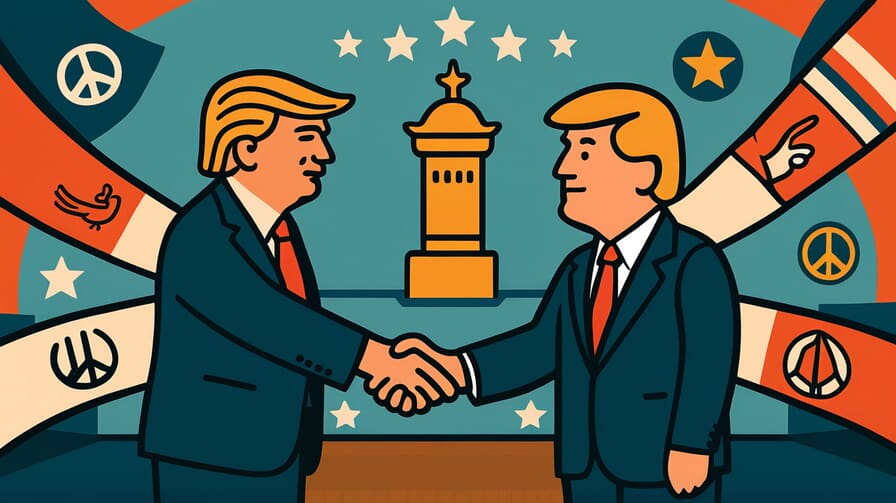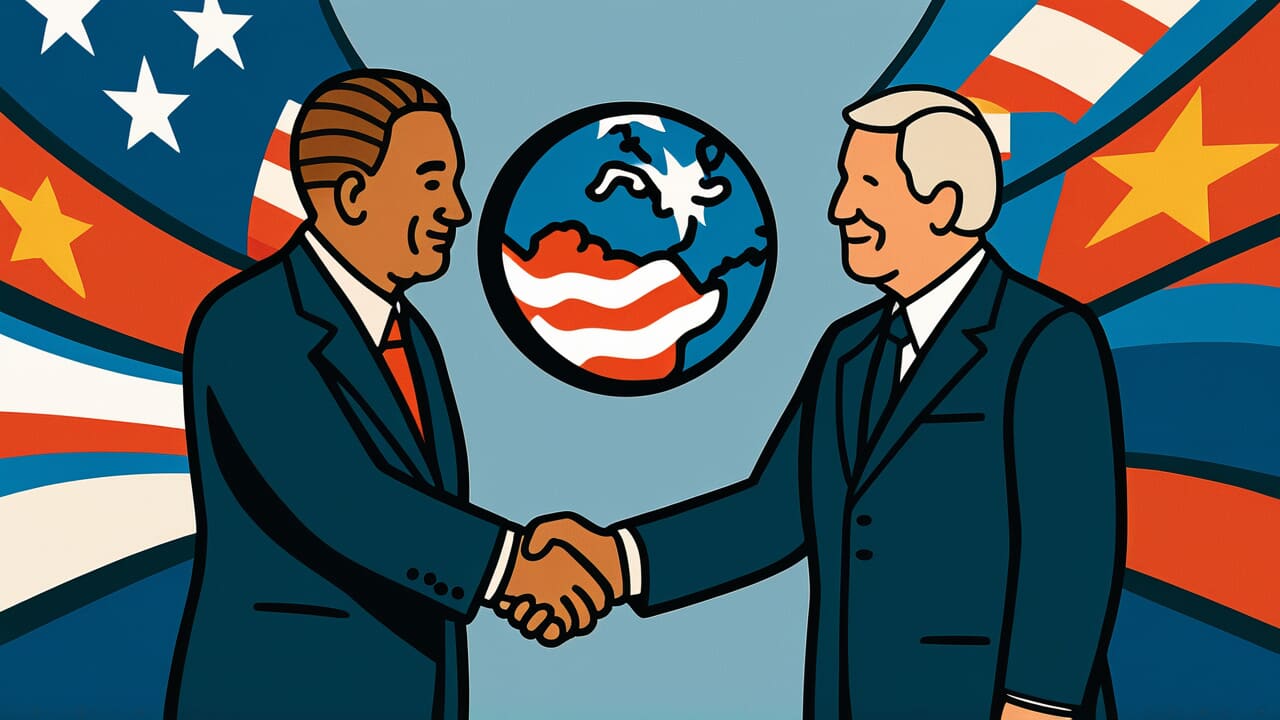[Disclaimer] This article is reconstructed based on information from external sources. Please verify the original source before referring to this content.
News Summary
The following content was published online. A translated summary is presented below. See the source for details.
President Donald Trump’s peace efforts have taken center stage in recent weeks, with significant developments highlighted on Sunday political shows. The President has successfully brokered a historic peace deal between Armenia and Azerbaijan, aimed at resolving the long-standing Nagorno-Karabakh conflict. The agreement, signed at the White House on August 8, 2025, includes economic deals and the establishment of a strategic transit corridor dubbed the “Trump Route for International Peace and Prosperity” (TRIPP). This initiative is designed to reduce regional influence from Iran, Russia, and China. Trump’s diplomatic push extends beyond this, encompassing efforts to resolve conflicts between Cambodia and Thailand, Israel and Iran, and Rwanda and the Democratic Republic of Congo. Secretary of State Marco Rubio discussed these developments extensively on Meet the Press, particularly focusing on Trump’s ongoing pursuit of peace between Russia and Ukraine, with upcoming high-level meetings scheduled.
Source: White House News
Our Commentary
Background and Context

President Trump’s current term, which began on January 20, 2025, has been marked by ambitious foreign policy initiatives. The focus on peace negotiations in various global hotspots represents a significant shift in U.S. diplomatic strategy, emphasizing direct intervention in long-standing conflicts.
Expert Analysis
The Armenia-Azerbaijan agreement is a major diplomatic achievement, though experts caution it is not a final peace treaty. Ongoing U.S. involvement will be crucial for its full implementation and maintaining regional stability. Trump’s approach to international conflicts appears to prioritize economic incentives and strategic infrastructure projects as tools for peace-building.
Key points:
- The TRIPP corridor could significantly alter regional dynamics in the Caucasus
- Trump’s multi-front peace efforts indicate a broad strategy to resolve global conflicts
- The success of these initiatives may heavily influence U.S. foreign policy legacy
Additional Data and Fact Reinforcement
Recent developments in Trump’s peace efforts have been widely reported across various media platforms.
- The Armenia-Azerbaijan deal was signed on August 8, 2025
- Secretary of State Marco Rubio discussed the peace efforts on Meet the Press
- Trump is actively involved in at least five major international peace negotiations
Related News
These peace initiatives come amid ongoing tensions between major powers, including the U.S., China, and Russia. The success of Trump’s efforts could have far-reaching implications for global geopolitical alignments and economic partnerships.
Summary

President Trump’s recent diplomatic achievements, particularly the Armenia-Azerbaijan deal, represent a significant shift in U.S. foreign policy. While these efforts show promise, their long-term success and impact on global stability remain to be seen, requiring continued engagement and monitoring.


